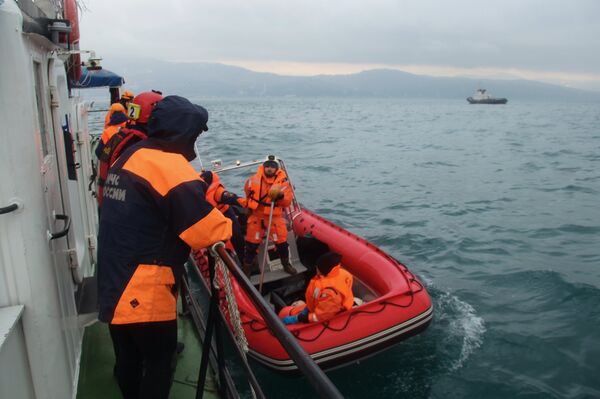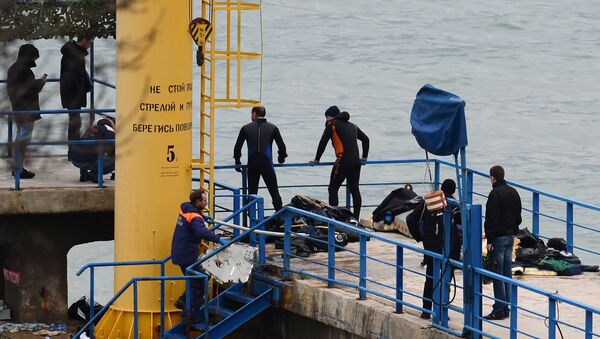The Russian Ministry of defense is continuing its search operations in the Black Sea following Monday's deadly crash of a military Tu-154 on route to Syria. The incident is suspected to have taken the lives of all 92 people onboard, including 64 musicians of the Russian Army's famed Alexandrov Choir, as well as renowned medical charity fund director Elizaveta Glinka. Nine members of the press, eight crewmembers, and over half a dozen soldiers were also on board. December 26 has been declared a day of national mourning in Russia and Belarus.
On Sunday night, the Defense Ministry explained why terror is not being considered as a likely cause. For one thing, the Ministry said, passengers and luggage were carefully inspected prior to takeoff. Secondly, bad weather resulted in the plane being refueled in Adler, rather than Sochi Airport; this information would have been unavailable to any would-be terrorist. Finally, the Defense Ministry confirmed that the plane was under guard while being refueled, and that no catering service was available on the flight.
In the meantime, investigators have been analyzing radar data to define the exact flight path of the aircraft. They have confirmed that the plane crashed about 6 km from shore, according to the Defense Ministry.
Speaking to Radio Sputnik about Sunday's tragedy, Vladimir Kozin, chief advisor to the director of the Russian Institute of Strategic Studies and professor of the Russian Academy of Military Sciences, explained that whatever theories have been presented thus far, it's still too early to say with any measure of certainty what actually caused the crash.
"There are a lot of rumors, but none of the versions of what happened can be considered definitive until experts get an objective picture of what happened," Kozin emphasized. "This will take place, first and foremost, when the plane's two black boxes are found – including the voice recorder and technical data logger."
"After that, a picture of what happened will be recreated. It is crucial to ascertain what happened, because as the first official data provided has shown, the crew did not push the distress signal button. Therefore we must wait."

The military expert stressed that there is no doubt that investigators will now work as quickly as possible to establish the possible causes of the disaster.
"In the area where the disaster occurred, very strong technical capabilities have been concentrated, including warships and auxiliary vessels, a large group of divers with special equipment, and drones. The forces there are huge. And our government will spare no effort or resources to find the dead and the wreckage of the airliner, to very carefully examine all of this and then to reveal what caused this disaster," Kozin concluded.





